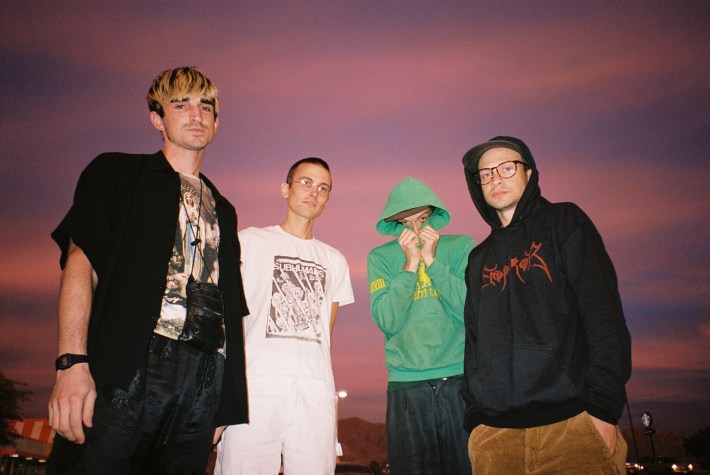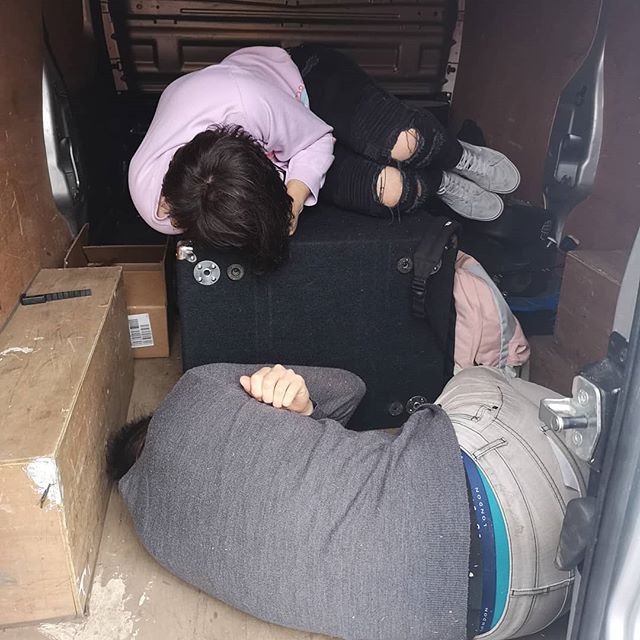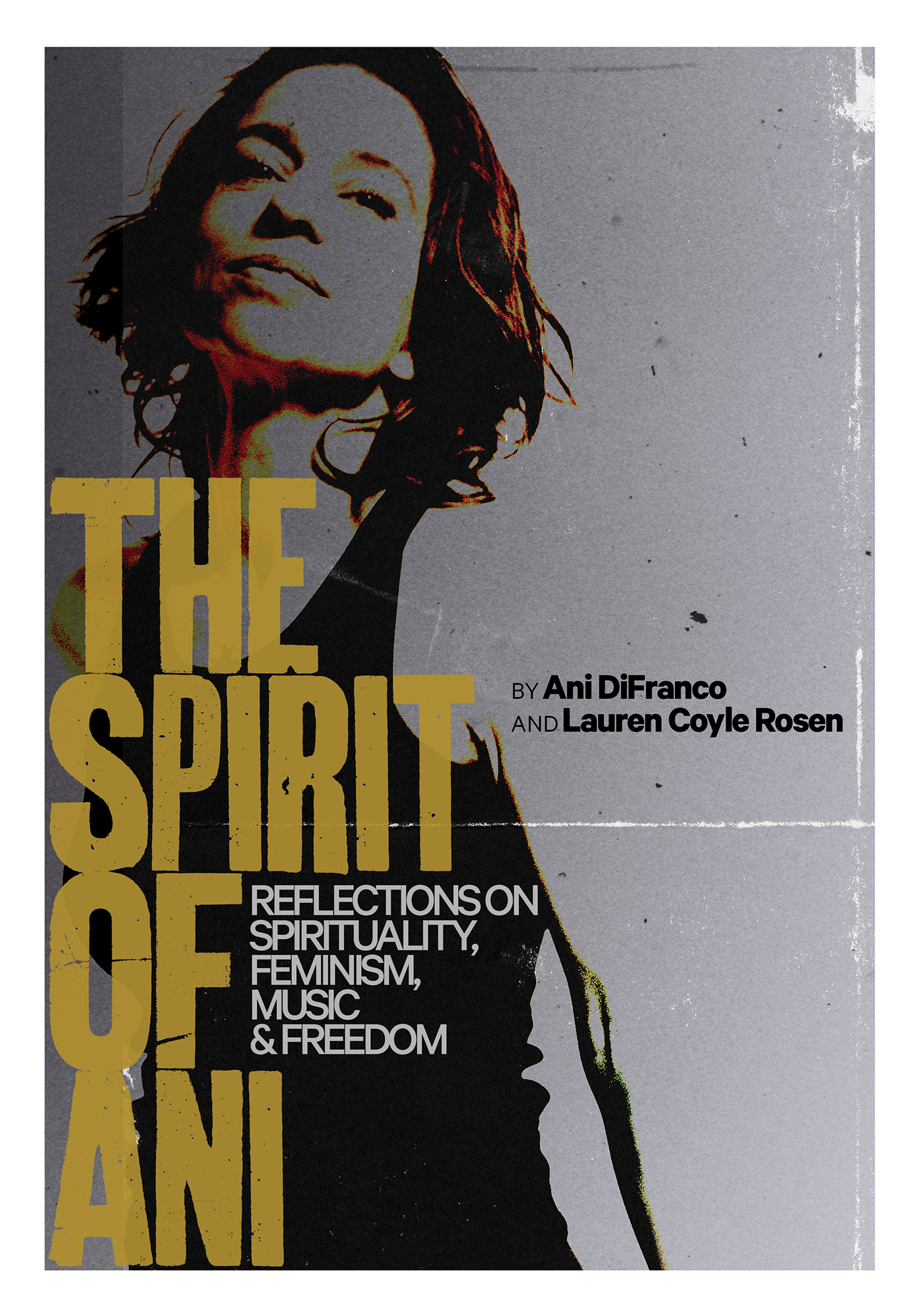A viral Twitter thread from Asheville indie rock band Wednesday sparked a conversation about the economics of touring in 2022. We spoke to DIIV, Squirrel Flower, and others about getting by in the age of Spotify and COVID.
By most metrics, Wednesday are a reasonably successful young band. Pitched at an odd midpoint between shoegaze and country-rock, the Asheville quintet's third album, Twin Plagues, came out last summer and drew raves from major outlets, including Stereogum, which named it Album Of The Week. Just recently, Wednesday followed Twin Plagues with a very good covers album and a contribution to Secretly Canadian's 25th anniversary celebration. On Spotify, the band has about 250,000 monthly listeners. If you're a person who pays attention to emerging, guitar-based indie-rock, you're probably paying attention to Wednesday.
But in late March, the group's lead singer, Karly Hartzman, offered fans a revealing glimpse of just how little indie-rock success gets you, financially speaking. In a much-discussed Twitter thread, Hartzman shared a list of income and expenses pertaining to the band's tour through the South, which included a stop at South By Southwest, where Wednesday played seven shows but only got paid for one. At the end of the leg, the band's earnings amounted to $2,084 and its expenses $2,182.39, meaning a net profit of -$98.39 -- which is to say, not a profit at all.
Just for transparencies sake & cause I feel comfortable posting this: here is why it is so hard for bands to go to SX !!
— Wednesday (@Wednesday_Band_) March 22, 2022
This is b4 paying 10% $ to the booking agent and not including food expenses
Combination of staying in COVID safe places and gas prices is p devastating pic.twitter.com/7822wQ9N9q
The numbers were sobering, given that, in the streaming age, touring is expected to be a band's primary income source. "It's even harder for bands who are more in the DIY side of things who went to [SXSW]," Hartzman wrote. "I ain't complaining abt doing my dream job, but do wanna show why being paid fairly from streaming would make a difference."
The thread promptly went viral. While it drew expressions of solidarity from fellow musicians (including Jeff Rosenstock, who bemoaned that South By Southwest had paid Wednesday nothing, leaving them to rely on dismal income from a house show), it also provoked lots of dismaying responses from people essentially blaming the band for not sacrificing all worldly comforts or pulling themselves up by their bootstraps or whatever. "Sleep in the van" was a common refrain. Other disheartening replies included "shower at trucker stops" and "being in a band is supposed to be a slog." Others chastised the band for spending money on an Airbnb.
Wednesday declined to be interviewed for this article, stating through a publicist that they're ready to leave the situation behind and move forward. But the post clearly touched a nerve. In interviews with Stereogum, several indie musicians said that Wednesday had prompted a deeply necessary reckoning with the financial precarity of touring, especially during a pandemic now entering its third year.
For musician Ella Williams, better known as Squirrel Flower, Wednesday's account of playing South By Southwest at a net loss was relatable. Williams was scheduled to play the festival in 2020, before the pandemic canceled it. "I just remember you could choose between having a wristband to all the other shows or getting paid $100 for your showcase," Williams says. "So I think it's cool that they posted that. I'm honestly surprised they didn't lose more money."
"Wednesday performed one official SXSW showcase," a SXSW spokesperson told Stereogum in a statement. "Any other performance was unofficial and not affiliated with our event. All official showcase artists are offered a registration package which gives them access to the conference, showcases, and artist-only areas. Domestic artists are given the option to receive a cash payment in lieu of the registration package. The cash payment for a solo act is $100 and $250 for bands. Most artists take the registration package."
Williams works other jobs when she's not on tour. But lately, she's been reflecting on the tension between thinking about music as an art form that brings her joy and thinking of it as a job. "I think this whole conversation ties into that," Williams notes. "Because it's hard to have to look at it as a job. But at the same time, you need other people to look at it that way to respect you."
The responses to Wednesday, meanwhile, provided a revealing -- if bleak -- glimpse into a lack of solidarity from many music fans, some of whom seem to expect that touring bands forgo any semblance of dignity or comfort just to break even on the road.
"It comes down to looking at artists as products and not people making art to share. And also, not looking at artists as workers," Williams says. "And it comes down to people in bands that do it completely differently, who don't really understand the vibe of long-haul touring. It's not a sprint. It's not a two-week-long party to get drunk every night and crash on people's floors. You're on the road for several months and it's important to conserve any energy that you can."
Zachary Cole Smith of the band DIIV was one of the artists who expressed sympathy for Wednesday's predicament on Twitter. "It did really disturb me," Smith says of the harsh reaction to the group's viral tweets. "It's a long, long tradition of people wanting musicians to suffer. There's this expectation that musicians transcend the capitalist framework. You sell out when you act in the interest of making money… It plays into the idea that musicians are seen as just commodities, and not as people."
In recent years, Smith has gotten involved with the Union of Musicians and Allied Workers (UMAW) to fight for a more equitable music industry. Although DIIV have not toured since March 2020, the musician says he can relate to the discrepancy between Wednesday's seeming outward success and their low earnings on tour. A decade ago, DIIV -- whose 2012 debut Oshin catapulted them to critical acclaim -- were in a similar position.
"I think people probably would have the idea that we were successful and making money, but we weren't," Smith says. "There's a misunderstanding about the level of success you have to achieve as an artist to even be able to make a living off of your work. I feel like people would be shocked if they had an idea of what artists they listen to actually come home with at the end of the day, or what their material conditions are like."
In the decade since Oshin came out, that situation has been intensified by the rise of the streaming economy and its dismal payouts to musicians. By most estimates, Spotify's payout rate comes down to less than half a cent per stream. The UMAW has petitioned Spotify to improve their streaming rates, pointing out that the company has tripled in value since the pandemic began, but CEO Daniel Ek has brushed aside these protests and essentially told musicians to just work harder. If most musicians can't possibly expect to make a living wage from people streaming their records, the expectation is that touring will provide the income.
"The streaming services don't pay us," says Smith. "It's like, that's how we make money."
When it comes to touring, the Wednesday blow-up revealed how many fans romanticize the idea of bands sleeping in the van to save money. Having experienced sleeping in vans and parking lots, Smith wouldn't wish it on anyone else -- not to mention the sheer privilege in suggesting it.
"It's privilege and misogyny," Smith says. "Women or queer artists or trans artists or artists of color won't have the same degree of safety sleeping in a Walmart parking lot. For me, sleeping in a van is, like, inhuman conditions. If that's the barrier to making music, who is going to be making music? Who will have access to touring?"
man the replies to this completely normal tweet reveal so much about the value that music ‘fans’ place on the material conditions of the actual people who make music. our labor is around making + playing music, not fulfilling some quota of suffering for a bunch of fucking morons https://t.co/eJWOlRPZ1N
— diiv (@DIIV) March 23, 2022
Forgoing basic amenities is also more endurable for young bands just starting out than it is for anyone attempting to sustain a long-term career out of music.
"I've been touring in many different capacities since I was 18, doing week-long DIY tours during the summer and having a big party of it, only crashing on dirty basement floors and shit like that," says Ella Williams. "At this point, I don't do that anymore. I just, like, can't. I'm at the ripe old age of 25 and I'm like, 'I can't do it anymore.'"
Still, the alternative is hardly luxury. For Williams, who just completed a two-month tour after releasing her album Planet (i) last year, touring with five people is a constant attempt to strike a balance between comfort and saving money. Often they would pile five people into one hotel room, with an air mattress on the floor. For about a third of the nights, they didn't have a hotel and would save money by crashing with friends.
"But it's also fucking hard during COVID, because you can't crash with people in the same way because you could be carrying COVID and not know it," Williams says. "And you could also get it from the people you're staying with."
Williams adds, "I make money when I tour, and I pay my bandmates. It's at the point where we all get per diems and we all walk away with a bit of money at the end. I'm not in the hole. But I easily could be if I stayed at hotels every night."

For indie artists without trust funds or celebrity parents, there is little hope that the accepted signifiers of success will bring substantial change to material conditions on tour. "There's this idea at play that's like, you pay your dues and you get them out of the way," Smith notes. "Wednesday is a successful band. They're still dealing with this reality. So the idea that it's a temporary condition, I think, is false."
Meanwhile, the pandemic has not only forced musicians to shoulder the responsibility of keeping themselves and their fans healthy -- such as begging audiences to wear masks -- but has also burdened them with new costs and stressors on the road. After releasing Planet (i) just before the delta variant landed, Williams extensively toured throughout 2021 and early 2022 without anyone in her touring party testing positive. But it has required vigilance -- she frequently tests and monitors the COVID numbers in each city -- and has come at a financial cost.
"Buying rapid COVID tests really sucks," Williams says. "They're like $10 a test. And if you're testing a couple times a week for five people, it really adds up. I think it's kind of crazy that that's an expense that individual people have to cover."
A band can conceivably forgo this cost by finding free testing sites, but it's not easy to coordinate testing hours and locations while traveling cross-country, Williams notes. And this is not to mention the loss incurred to countless acts when someone in the touring party does test positive and shows must be postponed or canceled at the last minute. (Members of Wednesday's touring party did wind up getting COVID during their recent leg of shows.)
Still, for Williams, the hardest part of touring during the pandemic has been needing to advocate for herself and her band even more than usual. Masks are a big example.
"There have been many venues where we walk in and nobody is masked," Williams says. "It's stressful and also necessary for me to request that people put their masks on. I am there because I want to play music for people. It just feels shitty to have to be making these calls because the government won't."
When Stephen Burdick, the lead singer of the Stone Eye, a grunge-adjacent rock band from Philadelphia, saw Wednesday's tour earnings, he replied with what he considered a helpful suggestion.
"Ya'll gotta do some DoorDash/instacart on your days off," Burdick, a.k.a. @TheStoneEye, tweeted. "We payed [sic] for our 3 night, $70 a night stay in Raleigh that way."
Ya’ll gotta do some DoorDash/instacart on your days off. We payed for our 3 night, $70 a night stay in Raleigh that way.
— The Stone Eye (@TheStoneEye) March 23, 2022
Some fellow musicians were appalled. The idea of musicians juggling already-grueling tour itineraries with low-wage stints in the gig economy seemed like a bleak satire of late capitalism.
But when reached for interview, Burdick, who has a small audio engineering company, confirms that he wasn't joking. He was dead serious.
In their spare time at home, he and his bandmates have been picking up shifts on delivery apps like DoorDash and Instacart for two or three years, just as a way to make some extra cash. During the band's recent tour through the South, they decided to try using the apps on the road to pay for hotel stays.
"This run was the first time we tried it," Burdick says. "We ended up doing 14 days out but only eight shows, so we have time to kill. Instead of spending $200 on a hotel and doing nothing, we're like, ‘Shit, might as well make some money back, you know?' And it worked out. We ended up paying for our hotel."
The experiment was a success, to Burdick's mind. But it was only feasible because the band had substantial downtime between shows — and because the musicians already have experience with the delivery apps.
In between gigs, "We have no urgency to go to the next town or whatever," Burdick says. "We're like, ‘Alright. Let's split up shifts.' Two guys go out for a few hours. Two guys go out for a few more hours. Spend like six, seven hours in total doing it. Then come back and you're like, ‘Well, the hotel's covered, and dinner tonight!'"
"It supplements income," Burdick adds. "Especially when it's a hard market right now. It's just what you gotta do, I feel like."
Isn't this all a little depressing? "Not really," Burdick says cheerily. "I think it's about knowing your worth. We're the Stone Eye. Who knows the Stone Eye, know what I mean? We're playing clubs to 30 people. We can't really demand a guarantee." The band tours in a minivan, and acknowledges that they're not big enough to make a living from music.
Other musicians were disturbed by the Stone Eye's proposed solution to touring woes.
"I have never heard of anyone doing that. Have never considered doing that," Ella Williams says, noting that she just completed a West Coast tour, during which a day off basically means driving for 13 hours. "So you know," she laughs, "didn't really have time for any extra DoorDash shifts."
Zachary Cole Smith is familiar with other money-saving tour hacks, such as what he calls "the free Chipotle trick." (In brief, call Chipotle, say you're representing such-and-such band, and ask to speak to a manager. Introduce yourself like you have some sort of authority, and your band might get free Chipotle… maybe?)
But he has never encountered the delivery-app solution. And he hopes he never does. "It's like, man, would you say that to anybody else working in any field? Like, ‘Damn, you didn't make money at your job, get another job!'" Smith says.
He found it particularly demoralizing that the DoorDash suggestion came from a fellow musician.
"If somebody in your same field is calling for better living conditions, they're not doing it for themselves. They're doing it also for you!" Smith exclaims. "The industry pits us against each other, but we're all in the same fucking crab pot or whatever. We can lift each other."






